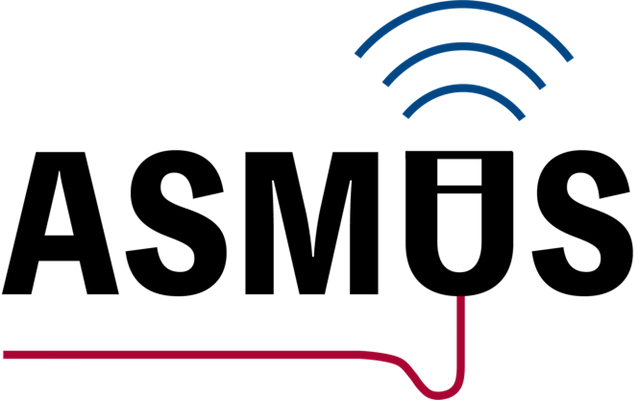
The ASMUS workshop is the official workshop of the MICCAI Society Special Interest Group on Medical Ultrasound. Over its six-year evolution, the ASMUS workshop has grown from its original focus on point-of-care ultrasound (POCUS) into a well-established interdisciplinary forum that attracts researchers developing next-generation ultrasound imaging methods, systems, and broader medical ultrasound technologies. This evolution has strengthened its role as a key venue within the MICCAI community, fostering collaboration between computer scientists, engineers, clinicians, and industry professionals. The consistent growth in participation and quality of submissions reflects its increasing recognition as an essential platform for advancing ultrasound imaging research.
The ASMUS 2025 workshop kicks off with two oral sessions (Segmentation, Imaging and Synthesis and Registration and Reconstruction), two Challenges (IUGC2025, TUS-REC2025), and poster session and features two keynote speakers - Dr. David Ouyang from Kaiser Permanent and Wei Luo from the Gates Foundation. Awards, including Best Paper Award, Best Oral Presentation Award and Best Poster Award will also be presented. This full-day workshop will begin at 8:00 am and take place in IBS-2F-100.
We connected with the organizers of the ASMUS 2025 workshop to find out what participants can expect in this year's edition.
ASMUS 2025 adds two interesting directions that would be attractive to the community: one is clinical-guided design in ultrasound workflow, and the other is large multimodal foundation model-driven AI technologies in ultrasound. We think that the goal of "simplifying ultrasound” requires both advancements by utilizing knowledge from clinical workflow into the design of AI systems and by leveraging existing large vision/language models for ultrasound images.
The response to the Call for Papers was encouraging. In 2025, the ASMUS workshop received many high-quality papers from different institutes around the world, and the number of submissions increased by 20% compared to last year. Following a rigorous peer review process and careful consideration of reviewers' feedback, 24 papers were accepted, representing diverse research directions in medical ultrasound imaging.
This year, we observed a noticeable increase in submissions related to medical image registration and reconstruction in ultrasound. Robust registration and reconstruction algorithms could significantly improve the reproducibility, interpretability, and automation potential of ultrasound in both diagnostic and interventional settings. This aligns strongly with ASMUS's mission of simplifying and standardizing ultrasound workflows, especially in point-of-care and low-resource environments. Besides, as a highlighted topic for this year, large vision-language or diffusion backbones, fine-tuned with LoRA / adapters, are replacing modality-specific CNNs and dramatically reducing data needs.
We are delighted to announce two exceptional keynote speakers for ASMUS 2025, whose insights promise to be a highlight for all attendees.
Our first speaker is a global-leading expert in cardiovascular AI, David Ouyang. Dr. Ouyang is a prominent cardiologist, physician-scientist, and researcher at Kaiser Permanente and the Smidt Heart Institute of Cedars-Sinai Medical Center. He leads significant research published in top journals (Nature, Nature Medicine, NEJM AI, JAMA Cardiology), demonstrating how AI can enhance diagnostic accuracy, uncover hidden patterns in patient data, and improve risk stratification. He is actively involved in designing and leading clinical trials to validate AI algorithms for real-world clinical use in cardiology. He will bring a speech titled "Towards Cardiovascular AI”, which will be a compelling journey about how AI could fundamentally reshape cardiovascular care for the better.
ASMUS 2025 will maintain the research focus to focus on the cost-effective nature of ultrasound that address clinical problems in low- and middle-income countries (LMICs), for better accessibility and acceptability of the technology. Therefore, we are happy to welcome our second speaker, Wei Luo from the Gates Foundation, who will speak about "Transforming Healthcare with AI: Scalable AI-powered Ultrasound Solutions for Resource-Constrained Settings”.
In low- and middle-income countries, access to diagnostic tools such as ultrasound machines and skilled medical technicians can be limited. The Foundation believes investing in and accelerating these technologies can transform health care systems.
Developing automated AI capabilities on ultrasound with a simplified user interface can enable the product to reach a broader set of health care practitioners, including nurses and midwives and help in addressing health equity by lowering the barriers to training and enabling faster exams.
A key part of this workshop will be highlighting cutting-edge challenges driving the field forward. We will feature two major initiatives: Trackerless 3D Freehand Ultrasound Reconstruction Challenge (TUS-REC 2025) and Landmark Detection Challenge for Intrapartum Ultrasound Measurement Meeting the Actual Clinical Assessment of Labor Progress (IUGC 2025). These challenges exemplify the community's push to overcome fundamental barriers and accelerate the development of simpler, more robust, and clinically impactful ultrasound solutions.
Thank you! Congratulations to the Organizing committee on an excellent program this year.